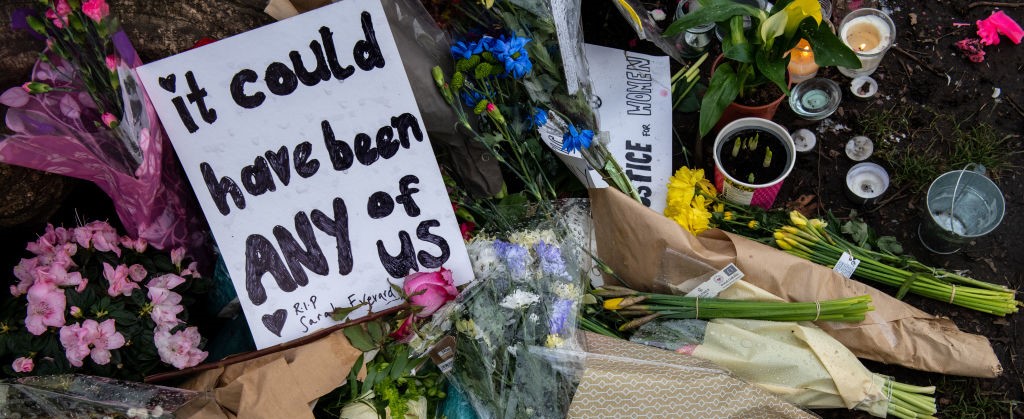No place of safety
It’s a well-known fact that victims of domestic abuse are most likely to be harmed by a man they know – often a relative or partner.
But did you know that in England and Wales alone two women are murdered each and every week by a current or former partner? That amounts to one woman killed every three days.
Domestic violence is such a pervasive problem that one in four women in England will experience it at some point in their lifetimes. Of all crimes, it is the one that has the highest rate of repeat incidents.
And the problem is only getting worse, as figures released by the Crown Prosecution Service (CPS) this week have revealed.
According the CPS report published yesterday (September 6), violent crime against women has gone up by 10 per cent in the last year alone, with the number of offences relating to domestic abuse, rape and sexual assault exceeding 100,000 in 2015/16.
The CPS has said that using the Internet as tool that enables perpetrators to control their victims is a trend that came to the forefront this year.
“The use of the internet, social media and other forms of technology to humiliate, control and threaten individuals is rising and it is something that we will possibly see increase further,” said director of public prosecutions Alison Saunders.
“It is undoubtedly easier to commit a lot of these crimes online, people do it without thinking, it is more immediate and it is about the reach and ability to communicate to so many more people.”
The number of reported rape cases went up by 11 per cent last year, while reported cases of all other sexual offences rose by astonishing 22 per cent from the previous year – the highest ever recorded.
Prosecutions of stalking and harassment increased by 7 per cent from the previous year.
But even as domestic violence becomes a greater problem, the most important avenue women have in protecting themselves against life-threatening abuse – women’s refuges – now potentially face total annihilation, all because of government policy.
As part of George Osborne’s autumn statement last year, the government pledged that it would cap housing benefit paid in the social sector to the same level paid to private landlords, a move which, according to a women’s charity, would cause the majority of women’s refuges to shutdown virtually overnight.
Refuges forced to closed
Women’s Aid notes that 67 per cent of its affiliated refuges in England reported in a survey that they will be forced to closed down if the measures go through, with 87 per cent reporting they would have to significantly scale down their level of support.
That’s because women’s refuges rental costs and service charges are covered in large part by the housing benefit they receive. For some refuges, according to Women’s Aid, housing benefit accounts for 90 per cent of these costs.
Unite national officer for equalities Siobhan Endean noted that the rise in violence against women is “deeply worrying”.
“Our greatest concern now is that amid this rise combined with the government’s housing benefit cap, more and more women who experience domestic abuse, many of them with children they must care for, will no longer have a place of safety to go to,” she explained.
Funding for women’s refuges has already faced a massive slash under the government’s local authority cuts – since 2010, nearly one in five refuges has shut down. As a result, on a typical day, 155 women and 103 children are turned away because of lack of space.
In response, the government had pledged £33m in support for women’s refuges, but critics have said that, now with changes to housing benefit which will decimate finances for supported housing, this is just another example of the government giving with one hand and taking with the other.
The government has said that it will delay changes to housing benefit until 2018 in order to give those in the supported housing sector – which also encompasses organisations providing housing for the elderly and disabled – time as a different funding plan is hammered out.
But Endean argues that even if women’s refuges are given a period of grace, these organisations are already suffering now because they are unable to plan ahead and so are deferring any plans to extend provision.
“The government’s austerity measures have already cut to the bone women’s refuges and supported housing for elderly and disabled people,” she said. “The government must end its policy of social cleansing and the uncertainty which is causing havoc in the sector and damaging planning for future provision and reverse its cap on housing benefit for the social sector immediately.”
Endean highlighted too the role that Unite reps are playing in ensuring that those who are victims of domestic violence are safe when they go to work.
Unite has a guide for reps to help negotiate with employers measures they can implement in the workplace to support women in the grip of domestic violence, including a granting time off to those experiencing domestic violence, for example, to enable them to sort out the practical and legal problems; extending leave if they need to go to a refuge or move away; or redeploying them to a different workplace or non-frontline job if the member wishes, among other measures.
Find out more about Unite’s work in combatting domestic violence and abuse here.
Just in
Labour leader Jeremy Corbyn asked prime minister Theresa May at prime minister’s questions (PMQs) this afternoon what the government intended to do to stop women’s refuges from shutting down as the housing benefit cap comes into effect.
May responded by saying “we are working on exempting refuges from the cap.”
Endean welcomed the commitment but noted that “the prime minister’s words must be matched by immediate action.”
“We have no time to waste as hundreds of women and children each and every day are turned away from the safe havens they so desperately need because of lack of capacity due to funding shortfalls,” she said. “It is no exaggeration to say that refuges save lives – this is very literally a matter of life and death.”
 Like
Like Follow
Follow


